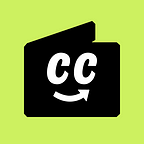Unlocking Decentralized Social Media’s Future with Blockchain
TL;DR:
- Explore the future of decentralized social media powered by blockchain technology, promising enhanced privacy, ownership, and innovation.
- Traditional web2 social media platforms face content control and data privacy challenges.
- Decentralized social media (DeSoc) uses blockchain to address these issues, allowing pseudonymous engagement, direct monetization through tokens, and open-source innovation.
- Challenges include usability, content moderation, and regulatory frameworks. While DeSoc holds promise, careful consideration is needed for its regulation and impact.
- The transformative potential of blockchain-driven social media is unfolding, aiming for increased user control and economic empowerment.
Unlocking Decentralized Social Media’s Future with Blockchain
The world of social media has transformed the way we communicate, connect, and share information. With the rise of traditional web2 social media platforms, billions of users engage in conversations, create content, and establish digital identities. However, as these platforms have grown, so have concerns regarding privacy, content control, and the centralization of power. In response to these challenges, a new paradigm is emerging — one that envisions a decentralized social media landscape powered by blockchain technology.
The Promise of Decentralized Social Media
Decentralized social media, often called “DeSoc,” represents a bold departure from the conventional platforms that dominate today’s digital landscape. At its core, DeSoc leverages blockchain principles to offer users enhanced privacy, ownership, and innovation.
Conventional web2 social media platforms have revolutionized global communication, connecting individuals across continents. With over half of the world’s population engaged in social media, these platforms generate significant revenue. However, inherent challenges persist — tech giants wield control over user-generated content, content moderation can lead to abrupt de-platforming, and profits are often derived from user data monetization. Additionally, closed systems stifle innovation by limiting opportunities for third-party developers.
DeSoc networks, underpinned by blockchain technology and web3 features like tokens, pseudonymity, and decentralized governance, promise to address these concerns. In essence, DeSoc strives to establish a direct connection between users and their audience and foster interaction among users. Users can create accounts without divulging personal information, engage with platforms aligned with their interests, and seamlessly communicate across multiple sites using their decentralized accounts. Users are empowered to define their content moderation guidelines, and transitioning between platforms is effortless, enabling the transfer of account data, posts, followers, and more.
DeSoc apps offer myriad advantages, including safeguarding privacy, empowering creators, and nurturing innovation:
- Enhanced Privacy and Pseudonymity: Traditional social media platforms often require users to disclose personal information, leading to concerns about data privacy and security breaches. DeSoc networks, however, enable users to engage pseudonymously, maintaining control over their online identity without revealing sensitive personal details. This shift empowers users to communicate freely without the fear of data exploitation.
- Ownership and Monetization: In contrast to the ad-driven revenue models of traditional platforms, DeSoc networks have the potential to reshape monetization. Native tokens issued on the blockchain reward users for their contributions to the network. By fostering a direct relationship between creators and their audience, DeSoc networks empower content creators to monetize their work and engagement directly.
- Innovation through Open Source: DeSoc networks are often built upon open-source code, fostering collaboration and accelerating innovation. Developers can modify and build upon existing code, promoting the creation of diverse and feature-rich platforms that cater to users’ unique preferences.
With its recent introduction of Threads, a microblogging app, Meta seeks to harness these benefits. Like conventional social media, Threads integrate with ActivityPub, a decentralized social networking protocol enabling independent server hosting. This decentralized structure empowers users with heightened data control and cross-network interactions.
Learn More: Web3 & Blockchain Trends to look out for in 2023.
Challenges and Considerations
While the concept of DeSoc holds immense promise, it’s important to acknowledge the challenges ahead.
DeSoc networks do face challenges related to usability and content moderation. The decentralized nature can impede users from discovering specific content and connections, and navigating the abundance of sites may prove overwhelming.
- Usability: The distributed nature of DeSoc networks can present challenges in terms of usability and finding relevant content and connections.
- Content Moderation: Striking a balance between freedom of expression and responsible content moderation remains a complex challenge in the decentralized landscape.
- Regulatory Frameworks: The evolving nature of DeSoc networks raises questions about how existing regulatory frameworks apply to these decentralized platforms.
Furthermore, site-specific moderation could inadvertently affect the entire network. Policymakers must comprehend DeSoc networks and their regulatory implications, particularly concerning misinformation, harassment, data protection, consumer disclosure, and tax implications related to token transactions.
Comparable to other decentralized apps on the blockchain, DeSoc apps harbor the potential to amplify global freedom and opportunities by endowing creators with heightened control over content and networks. Blockchain’s groundbreaking capacity to facilitate direct peer-to-peer information sharing has introduced diverse use cases that harness its efficiency, transparency, and accessibility. In an on-chain environment, decentralized protocols’ transparency and trust are inherent, continuously expanding alongside technological progress. Thus, legislators and regulators concerned about social media should channel their focus toward centralized entities, necessitating augmented transparency and disclosure.
End Note
As the potential of decentralized social media powered by blockchain technology unfolds, it’s clear that a transformative shift is underway. Cwallet, a pioneering force in the financial realm, is dedicated to reshaping the landscape of cryptocurrencies and blockchain technology.
Our mission is to create trustworthy solutions that amplify digital assets’ practicality and global adoption, fostering economic empowerment across diverse communities. Operating under the belief that cryptocurrencies and blockchain can unlock unprecedented economic opportunities, Cwallet’s commitment extends beyond borders.
At Cwallet, we remain steadfast in crafting the most dependable products, services, and tools, eagerly anticipating further engagements with policymakers to delve into this captivating realm.
